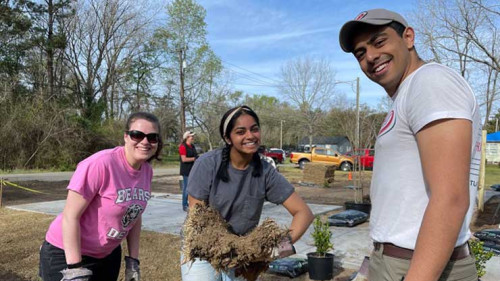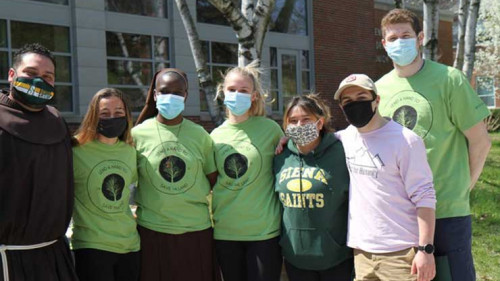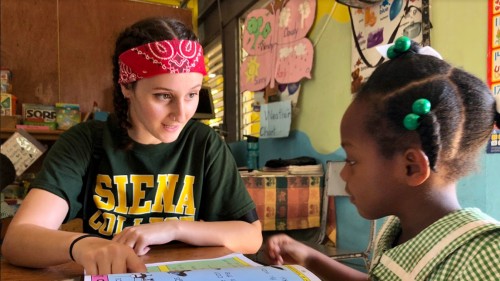
Along with student-engagement through scholarly activity, Siena College provides its students with opportunities for personal development through peer interaction and community service. “Fostering growth and encouraging students to seek opportunities to engage with each other to improve their communities is a central component of the Siena College mission,” said Maryellen Gilroy, Ed.D., vice president for student affairs.
The College is now among a network of more than 70 colleges and universities, including public and private two and four-year schools, from across the country to join the NASPA – Student Affairs Administrators in Higher Education Lead Initiative on Civic Learning and Democratic Engagement.
“Participating in NASPA’s Lead Initiative is a reflection of the quality of our current efforts and ongoing commitment to inspire students to challenge themselves through leadership and service,” said Gilroy.
As part of the Lead Initiative, Siena College has committed to further integrating civic learning and democratic engagement into its Student Affairs initiatives which already provide students with a variety of opportunities.
Student Affairs professionals have partnered with faculty to offer well-rounded opportunities. They include the Cross-Cultural Solidarity Experience, which provides cross-cultural learning opportunities and weaves community partnerships into course curricula to engage students about issues of social injustice and the “Peer Education and Empowerment Program at Siena (P.E.E.P.s) in the Classroom” initiative, which allows peer educators to discuss in first-year courses ways to recognize, report and prevent sexual violence and methods of turning classroom learning into community advocacy.
Student Affairs also supports extracurricular activities for students such as the weekly sustainable lunch program and the St. Clare Leadership Series: Ours to Do – Women Leading the Way, which helps students develop the skills needed to live lives of servant leadership through workshops, mentoring opportunities, a service trip scholarship, and an annual lecture featuring women models of civic leadership.
Along with building activities into student affairs strategic goals and learning outcomes and collecting data on successful efforts, the Lead Initiative will foster collaboration with students, faculty, and community partners to increase civic learning and help solve community problems through collective action.
“NASPA has long been committed to ensuring that a college education includes developing students as leaders and as citizens through a commitment to civic engagement,” said NASPA President Kevin Kruger, Ph.D. “Through the Lead Initiative, NASPA is shining light on the unique contributions that student affairs professionals are making to democratic engagement. In a time of concern and worry about our civic society, it is critical that college administrators are doing all that they can to present students with opportunities to help them develop as productive and engaged citizens.”
NASPA - Student Affairs Administrators in Higher Education is the leading association for the advancement, health, and sustainability of the student affairs profession. Founded in 1919, NASPA comprises more than 13,000 members in all 50 states, 29 countries, and 8 U.S. Territories.



